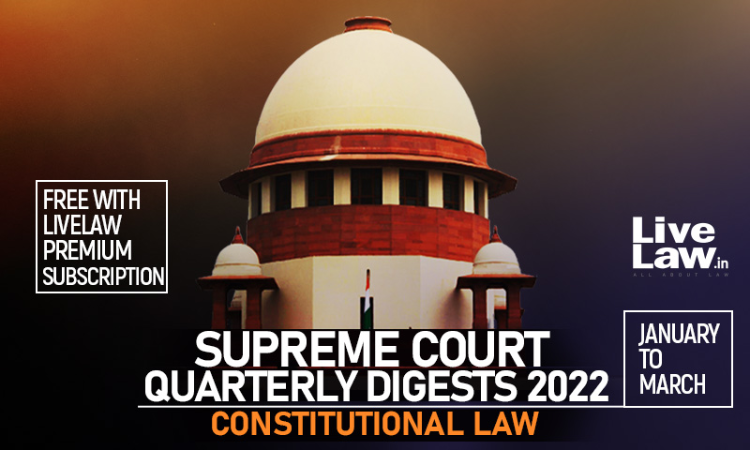Supreme Court Quarterly Digest 2022 - Constitutional Law (Jan - Mar)
LIVELAW NEWS NETWORK
9 Jun 2022 10:48 AM IST

Next Story
9 Jun 2022 10:48 AM IST
Constitution (102nd Amendment) Act, 2018 - What the 102nd Amendment prohibits the State from undertaking is identifying a caste as SEBC or including or excluding a community from the list notified by the President - Determining the extent of reservation for a community amongst the list of Most Backward Classes does not amount to identification. (Para 31) Pattali Makkal Katchi...
